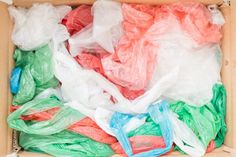Whether or not plastic bags are biodegradable depends on the nature of the product. Some are produced using petrochemicals, while others are produced by microorganisms. In both cases, the products decompose into water, carbon dioxide, and biomass.

Source: https://i.pinimg.com
Reusable plastic bags
Using reusable plastic bags is an eco-friendly solution to single-use plastic bags. Using a reusable shopping bag saves trees and fossil fuels, reduces litter, and decreases your carbon footprint.
Most disposable plastic bags are made from petroleum, which contributes to greenhouse gas emissions. The major production process emissions include nitrous oxides, volatile organic compounds, and methanol. Combined, these chemicals are harmful to the environment and create a large impact on climate change.
In addition to contributing to climate change, plastic bags are also dangerous for wildlife. Microplastics, which are smaller pieces of plastic, can find their way into waterways and the food chain. In addition, ingested plastics can obstruct an animal's digestive system.
Biodegradable plastics are often marketed as eco-friendly alternatives to traditional plastics. However, they do not break down in all environments and may leave behind toxic chemicals. These bags are often landfilled.
While some biodegradable garbage bags are made from post-consumer recycled material, other products are manufactured with virgin, non-recycled material. Because of this, the discarded reusable plastic synthetic bags will eventually turn into toxic chemical elements over time.
Some eco-friendly options are paper bags, which are recyclable and biodegradable bags. Paper is a renewable resource and easy to recycle. In addition, paper products can be certified by the FSC (Forest Stewardship Council). Buying paper bags is a good way to support environmental efforts.
Another environmentally friendly choice is a jute bag. These natural fiber bags are biodegradable and are easy to clean when dirty. They are also customizable, which allows businesses to advertise their name and logo.
Other eco-friendly options include cloth bags, which are typically made from cotton. Cotton is a water-guzzling crop and pesticide-intensive. It is also known to carry bacteria.
As with other eco-friendly products, watch for misleading claims and third-party certifications. Some companies have gotten into hot water for making false promises to consumers. The Federal Trade Commission has strict guidelines for labeling and advertising biodegradable products. For more information, visit the "Truth in Advertising" section of the FTC Green Guides

Source: https://i.pinimg.com
Regular plastic bags
Unlike biodegradable bags, conventional plastic compostable plastic bags are made of long polymer chains that require long periods of time to degrade in the environment. They are difficult to recycle, and many consumers do not know how to properly dispose of them.
Luckily, there are products that are designed to be compostable. However, many of these are only tested in industrial compost settings. They are not suitable for household use because they can contaminate regular waste streams. In addition, these types of products can also be found in landfills where they produce methane, a powerful greenhouse gas.
Those who are interested in using biodegradable bags should find one that has been certified by the Biodegradable Products Institute. They are a trade association that represents the compostable plastic industry. The organization claims to be North America's only third-party tester of ASTM standards for compostable items.
In the United States, the Federal Trade Commission's Guides for the Use of Environmental Marketing Claims, commonly known as the green guide, require that plastic products have proper markings on them. The same is true in Europe. In order to be compliant with the standard EN13432, products must be certified by a company that is accredited by the BPI.
There are also companies that claim that their products are oxo-degradable. These types of bags are made from additives that speed up the breakdown of the polymer. This may increase their decomposition rate, but can also cause more pollution. In fact, some of these additives have been challenged in court.
The University of Plymouth conducted a study to determine the rate at which these types of bags break down in different environments. Researchers exposed five types of plastic bags to air, soil, and sea environments. They evaluated two brands of oxo-degradable bags and one of biodegradable bags.
The study found that neither type of bag reliably decomposed in all three environments. The results suggest that both types of bags are not suitable for use in traditional plastic grocery bag recycling streams.


No comments yet